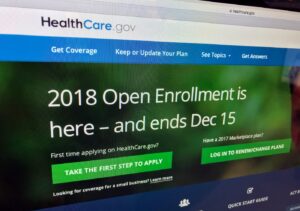Heterozygous familial hypercholesterolemia (FH) affects up to 1 in 250 people worldwide, but only an estimated 10% of these individuals receive a diagnosis and subsequent treatment. Based on this prevalence estimate, roughly 300,000 patients with COVID-19 may have heterozygous FH.1
Individuals with FH comprise a medically vulnerable group with an elevated risk of COVID-19 infection and related complications. These patients have a “dysfunctional endothelium prone to further damage by the direct viral attack and the hyper-inflammatory reaction typical of severe COVID-19,” according to an article published in Atherosclerosis by Vuorio et al.1
High low-density lipoprotein cholesterol (LDL-C) represents the “root cause” of the heightened susceptibility to COVID-19 infection in patients with FH.1 The risk of premature cardiovascular disease is increased by up to 20-fold in FH, underscoring the risk of cardiovascular injury associated with COVID-19 infection in this population.2
In addition to the important role of statin therapy in patients with FH, findings have generally demonstrated benefits of statin use in individuals with COVID-19. “Based on the available evidence, the most important mechanism behind the favorable effects of statins in COVID-19 appears to be the reduction in the risk of microthrombus formation,” explained Vuorio et al.1 Accordingly, it may be advisable to increase the dose of statins in FH patients with COVID-19 following the acute phase of infection.
We interviewed two experts to gauge their thoughts and recommendations regarding COVID-19 in patients with FH: Nishant Shah, MD, FACC, assistant professor of medicine at Duke University School of Medicine and cardiologist at the Duke Heart Center in Durham, North Carolina; and Mary P. McGowan, MD, assistant professor of medicine at the Geisel School of Medicine at Dartmouth and co-director of the Lipid Clinic at Dartmouth-Hitchcock Medical Center in Hanover, New Hampshire, and chief medical officer of the Familial Hypercholesterolemia Foundation. Dr Shah and Dr McGowan have also published recent articles pertaining to this topic.3,4
What is known about the effects of COVID-19 infection on patients with FH?
Dr Shah: Patients with FH can be especially vulnerable for unstable plaques that could rupture in the setting of active infections such as COVID-19. Inflammation associated with viral infections are known to increase atherosclerosis, and this can be dangerous in FH patients if LDL levels are uncontrolled and/or have been elevated for a long duration of time.5
Prolonged exposure to elevated LDL leads to endothelial dysfunction, which can be exacerbated by COVID-19 and increase the risk of an acute atherosclerotic cardiovascular disease (ASCVD) event. Many patients with FH may have also already had a cardiovascular event – such as an myocardial infarction (MI) or stroke – which places them in higher-risk groups for more severe disease.
Dr McGowan: As the Vuorio article points out, the lifelong exposure to elevated LDL-C in patients with FH can result in systemic endothelial dysfunction, making individuals more susceptible to severe effects of COVID-19.1 The FH Foundation has recently submitted an article on this subject that is under review. While I cannot yet share the specifics of our analysis, I can tell you that persons with FH have an increased risk for MIs with COVID-19 infections.
Which specific treatment strategies are recommended for FH patients with COVID-19 infection?
Dr Shah: In addition to evidence-based treatment strategies for COVID-19, lipid-lowering therapy for FH patients must be continued to ensure optimal LDL-C levels. Statins have actually shown some benefit against COVID-19 and also have pleotropic anti-inflammatory effects.1
In FH patients who are in primary prevention risk categories, we typically like to see LDL-C levels less than 100 mg/dL. The goal is even more strict (less than 70 mg/dL) for patients in secondary prevention.6 Thus, if the LDL-C is not at goal, now would be a great time to initiate or optimize therapy.
This may also be a great time to check a lipid panel if one has not been obtained recently to help diagnose patients with FH, as FH remains underdiagnosed overall. Knowing that a patient has FH is important during a COVID-19 infection, as he or she is at much higher risk for complications.
Dr McGowan: During the pandemic, healthcare providers caring for persons with known FH should counsel their patients on the importance of strict adherence to Centers for Disease Control and Prevention (CDC) guidelines for prevention –ie, handwashing, double masking, and social distancing – as it is clear that persons with FH are at increased risk for poor outcomes should they contract COVID 19.
Additionally, healthcare providers caring for these patients should push even harder to achieve guideline-based LDL-C goals in persons with FH. This should include prescribing a high dose of high-intensity statins (atorvastatin 40 or 80 mg per day or rosuvastatin 20 or 40 mg per day). This should be supplemented with ezetimibe and PCSK9 inhibitors if needed. There is some evidence that people taking statin therapy may have less serious COVID-19 infections should they become infected.1
It is important for all persons with FH to have their lipoprotein (a) or LP(a) measured. Lp(a) is elevated in approximately 30% to 50% of persons with FH; it is an independent predictor of ASCVD and increases the risk associated with FH.7 Since Lp(a) is an acute phase reactant, it will increase with COVID-19 infection and may increase the risk of MI and stroke. Knowing if a person with FH has an elevated Lp(a) is important in predicting outcome should a person contract COVID-19 – it may lead a physician to have a lower threshold for admission to the hospital or intensive care unit.
Once the patient is admitted, continuation of all lipid-lowering therapies – or even intensifying therapy – is recommended, in addition to treatment with COVID-19 treatments that have been shown to work, perhaps with a lower threshold for initiation of steroids and other therapies.
On the FH Foundation website, we have letters that patients can print out to bring to the emergency department should they contract COVID-19. These letters discuss the added risk associated with both FH and elevated Lp(a) to educate staff who may not be as familiar with these two conditions. Clinicians can feel free to direct patients to the website to access these letters as well as our recorded COVID-19 webinars.
What are your thoughts about the key points made in the article by Vuorio et al that, in FH patients, the “focus should therefore be on the effective lowering of LDL-C levels, the root cause of the expected excess vulnerability to COVID-19 infection in these patients” as well as the suggestion to “consider whether statin treatment should be intensified after the acute phase of the infection”?
Dr Shah: The article by Vuorio et al. is an excellent summary of the interplay between COVID-19 and FH.1 It summarizes the pathophysiology of atherothrombosis and highlights the vulnerability of FH patients to COVID-19. I agree with their point that LDL-C levels should be aggressively lowered to avoid complications, as well as considering intensifying statin therapy, which has been shown to be beneficial against COVID-19. This may also be a good time to identify patients with FH who remain underdiagnosed nationally.
Dr McGowan: I agree with these statements, as noted above. During the pandemic, as I have continued to see my FH patients in lipid clinic whether virtually or in person, I stress that the most important things they can do are to follow the CDC guidelines and to work to lower their LDL-C as much as humanly possible. I have a lower threshold for adding ezetimibe or a PCSK9 inhibitor to their statin therapy, and I stress the importance of their knowing their Lp(a) level.
Because there are data suggesting accelerated atherosclerosis following acute infections, a strong case can be made to intensify lipid-altering therapies in the convalescent phase of COVID-19 infection.5
What are other key recommendations or points for clinicians to consider regarding this patient population?
Dr Shah: FH is an important diagnosis that is often not discovered until a patient has a cardiovascular event. It is important to remember to obtain good family histories for cardiovascular disease and routine lipid panels for timely diagnosis. This will ensure early initiation of lipid-lowering therapy. Early referrals to specialty centers can also aid in management.
As many patients with FH also have elevated Lp(a), another inherited biomarker of risk, it is important to screen for Lp(a) as well if an FH patient is identified. Currently, PCSK9 inhibitors can modestly reduce Lp(a) levels and may be an option in patients with FH. However, therapies that more directly target Lp(a) are currently in clinical trials and have shown great promise.8
Dr McGowan: Early and aggressive treatment for individuals with FH can prevent premature cardiovascular disease. These individuals are often hiding in plain sight and require diagnosis and differentiated treatment to reduce their risk of heart disease and severe COVID-19 infection.
References
1. Vuorio A, Raal F, Kaste M, Kovanen PT. Familial hypercholesterolaemia and COVID-19: a two-hit scenario for endothelial dysfunction amenable to treatment. Atherosclerosis. 2021;320:53-60. doi:10.1016/j.atherosclerosis.2021.01.021
2. Kolominsky J, Choxi R, Al Rifai M, Patel J, Shapiro MD. Familial hypercholesterolemia: cardiovascular risk stratification and clinical management. American College of Cardiology. June 1, 2020. Accessed online March 10, 2021.
3. Shah NP, Ahmed HM, Wilson Tang WH. Familial hypercholesterolemia: detect, treat, and ask about family. Cleve Clin J Med. 2020;87(2):109-120. doi:10.3949/ccjm.87a.19021
4. McGowan MP, Hosseini Dehkordi SH, Moriarty PM, Duell PB. Diagnosis and treatment of heterozygous familial hypercholesterolemia. J Am Heart Assoc. 2019;8(24):e013225. doi:10.1161/JAHA.119.013225
5. Dahal U, Sharma D, Dahal K. An unsettled debate about the potential role of infection in pathogenesis of atherosclerosis. J Clin Med Res. 2017;9(7):547-554. doi:10.14740/jocmr3032w
6. Lui DTW, Lee ACH, Tan KCB. Management of familial hypercholesterolemia: current status and future perspectives. J Endocrine Soc. 2021;5(1):bvaa122. doi:10.1210/jendso/bvaa122
7. Vuorio A, Watts GF, Schneider WJ, Tsimikas S, Kovanen PT. Familial hypercholesterolemia and elevated lipoprotein(a): double heritable risk and new therapeutic opportunities. J Intern Med. 2020;287(1):2-18. doi:10.1111/joim.12981
8. Borrelli MJ, Youssef A, Boffa MB, Koschinsky ML. New frontiers in Lp(a)-targeted therapies. Trends Pharmacol Sci. 2019;40(3):212-225. doi:10.1016/j.tips.2019.01.004
This article originally appeared on The Cardiology Advisor





